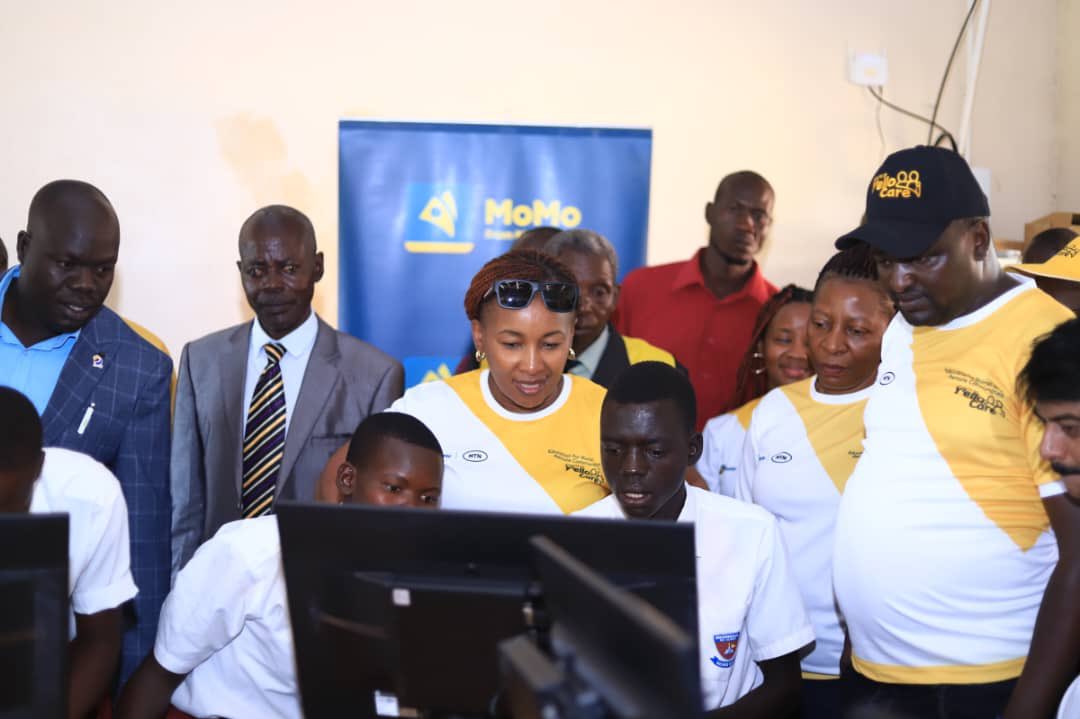MTN Foundation expands digital literacy, equips 63 schools with ICT labs
MTN Uganda, through its philanthropic arm, MTN Foundation, is stepping up its digital literacy efforts, reinforcing its
role in bridging the country’s digital divide.
So far, the Foundation has equipped 63 schools across Uganda with advanced computer labs, providing students
with the skills they need to compete in an increasingly digital economy.
The initiative aligns with Uganda’s Vision 2040, the country’s Digital Transformation Roadmap, and global
development priorities, including the UN Sustainable Development Goals on education, gender equality, and reducing
inequalities. MTN’s digital push is also a key pillar of its Ambition 2025 Strategy, which focuses on expanding digital
and financial inclusion.
Beyond the labs, the MTN Internet Bus— a mobile digital learning centre—has provided hands on training to more
than 50,000 young people in underserved communities. Additional programs, such as the MTN Skills Academy, MTN
Ace, and MTN Girls in Tech, have further enhanced digital literacy, improved employability and fostering
entrepreneurship.
“Digital literacy is no longer optional—it’s a necessity,” said Bryan Mbasa, Senior Manager at MTN Foundation
Uganda. “We want to give young Ugandans the tools they need to unlock opportunities in education, business, and
the job market.”
This development comes at the time Uganda’s government is ramping up efforts to ensure digital access for students,
with a plan to establish computer labs in all public secondary schools. The Uganda Communications Commission
(UCC) said it has already installed over 1,000 labs nationwide. But with more than 70% of the population under 30,
the demand for digital skills far outstrips the current supply.
Youth unemployment remains a pressing issue, with rates hitting 16.3%, compared to the national average of 11.7%,
according to the Ministry of Gender, Labour, and Social Development. Young women, in particular, face added
barriers to accessing quality education and digital skills, limiting their career prospects.
For schools already benefiting from MTN’s support, the impact is tangible. For instance, at St. Catherine Girls
Secondary School in Kazo District, which has over 500 students, Head Teacher Sr. Assumpta Mayar said the new
computer lab is a game changer.
“This is more than just a donation—it is an investment in the future of our students. It will help them develop skills that
are crucial in today’s world.”
Gulu High School’s Head Master, Nobert Tommy Ocen, echoed similar sentiments, calling on stakeholders to ensure
the sustainability of the ICT facility. “This is an opportunity that we must protect and use wisely,” he said.
Meanwhile, students at St. Francis Primary School for the Blind in Soroti see the modern technology as a
transformative tool. “These computers will help us transcribe our work, making learning and research easier,” said
Francis Wamimbi, a P7 student.
Mbasa said MTN Uganda’s goal is not just to distribute technology but to drive long-term impact. “We’re not just
installing computer labs—we’re fostering innovation, critical thinking, and collaboration,” Mbasa said. “That’s what the
future demands.”
He said the company will continue to expand its digital literacy programs, working with government agencies, private
sector partners, and local communities to ensure that no one is left behind.




















